Dead Sea Scroll Cave Found, Minus the Scrolls
The 12th scroll cave, the first found in over 60 years, marks the initial success of Operation Scroll.
Hebrew University archaeologists working with Liberty University students have uncovered a new cave containing Dead Sea scrolls for the first time in more than 60 years.
Hebrew University of Jerusalem announced the finding Wednesday, Feb. 8. Oren Gutfeld and Ahiad Ovadia from the university’s Institute of Archaeology carried out the excavations Liberty’s Randall Price and his students from the Lynchburg, Va., campus.
The cave on the cliffs west of Qumran, near the northwestern shore of the Dead Sea, held scrolls from the Second Temple period that were looted by Bedouin in the middle of the 20th century.
The excavation was supported by the Civil Administration of Judaea and Samaria, by the Israel Nature and Parks Authority, and the Israel Antiquities Authority and is a part of Operation Scroll, launched by IAA Director-General Israel Hasson to undertake systematic surveys and to excavate the caves in the Judean Desert.
Numerous storage jars and lids from the Second Temple period were found hidden in niches along the walls of the cave and deep inside a long tunnel at its rear. The jars were all broken and emptied, and the discovery of a pair of iron pickax heads from the 1950s (stored within the tunnel for later use) proves that the cave was looted.
Scholars suggest that the site should be numbered Cave 12 among the scroll caves. Like Cave 8, in which scroll jars but no scrolls were found, this cave will receive a Q designation, Q12 (the Q for Qumran in front of the number indicates no scrolls were found).
“It was accepted that Dead Sea scrolls were found only in 11 caves at Qumran, but now there is no doubt that this is the 12th cave,” Gutfeld said. “Although at the end of the day no scroll was found, and instead we only found a piece of parchment rolled up in a jug that was being processed for writing, the findings indicate beyond any doubt that the cave contained scrolls that were stolen.”
Those findings include jars, a leather strap for binding a scroll, a cloth that wrapped scrolls, and tendons and pieces of skin connecting fragments.
The discovery of pottery, flint blades, arrowheads, and a decorated stamp seal made of carnelian, a semiprecious stone, indicated that the cave also was used in the Chalcolithic and Neolithic periods.
“The important discovery of another scroll cave attests to the fact that a lot of work remains to be done in the Judean Desert, and finds of huge importance are still waiting to be discovered,” Hasson said. “We are in a race against time as antiquities thieves steal heritage assets worldwide for financial gain. The state of Israel needs to mobilize and allocate the necessary resources in order to launch a historic operation, together with the public, to carry out a systematic excavation of all the caves of the Judean Desert.”
- Hebrew University archaeologist Ahiad Ovadia digs in the cave.
- This cloth was used for wrapping scrolls.
- Jar fragments litter the cave floor.
- A small, unused piece of a scroll remains.
- A seal made of semiprecious carnelian stone was found.
- The cave also contained Neolithic flint tools.



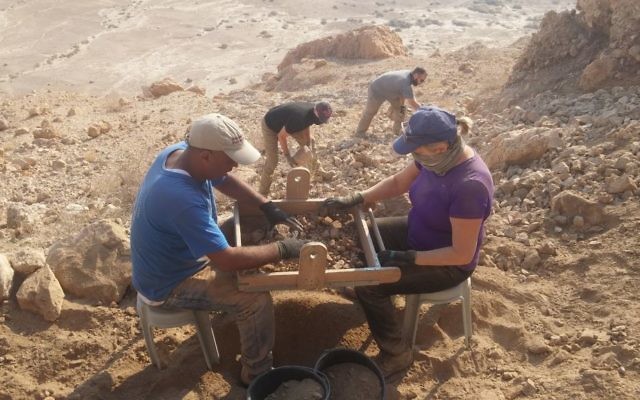
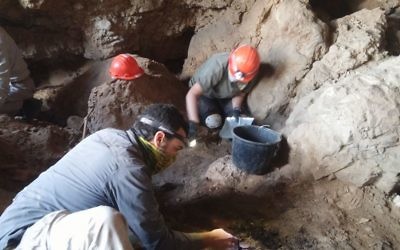
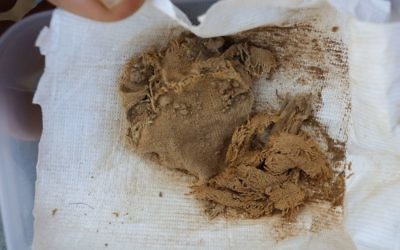
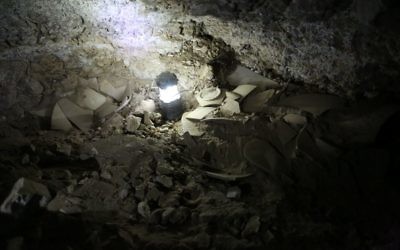
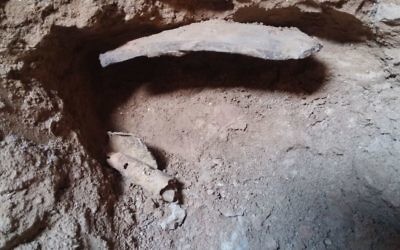
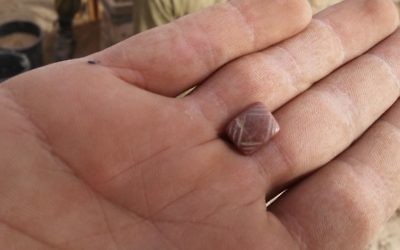
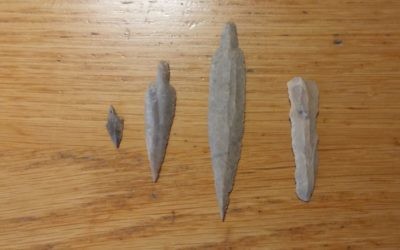
comments